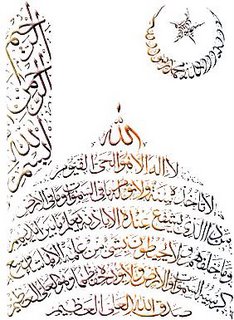Adil Najam
 I write these lines as midnight strikes in Pakistan on the night between 9th and 10th Moharram. I write these lines as the news on television flashes news about blasts and bombs all around. How much more poignant could the message of Ashura be than it is today? Each year, it seems, the message of Ashura becomes more poignant and more important than the year before. But each year, it also seems, that the message becomes less understood. Each of us has to understand what that message means to us. All I can do today is to repeat my own understanding, in the very same words I had used the last two years.
I write these lines as midnight strikes in Pakistan on the night between 9th and 10th Moharram. I write these lines as the news on television flashes news about blasts and bombs all around. How much more poignant could the message of Ashura be than it is today? Each year, it seems, the message of Ashura becomes more poignant and more important than the year before. But each year, it also seems, that the message becomes less understood. Each of us has to understand what that message means to us. All I can do today is to repeat my own understanding, in the very same words I had used the last two years.
To me, Ashura commemorates a struggle that is steeped in deep spiritual meaning, not only for Islamic history but for all humanity. It is a struggle between good and evil, between just and unjust, between weak and powerful, between immediate and the eternal, between principle and ambition. The power of Ashura is not only in the epic events that it commemorates, it is in the narrative of those events, in the symbolisms that we construct. Ultimately, it is in the meanings that we derive from those events.
Muharram is, of course, of special significance to Shias. But the events and meaning of Ashura is of significance and relevance to all Muslims, and I would suggest, to all humans everywhere.
Like so many others growing up in a Sunni household I grew up observing ehteram-i-Muharram and am always drawn in these days leading up to Ashura towards thinking about the meaning of religion and of faith. To me these have always been days of deep spiritual reflection; especially of intellectual enquiry into the meaning of justice (the concept of ‘adl’ holds a deep significance to me given the name I was given at birth and therefore I have always interpreted Ashura particularly as a time to reflect on what justice is).
Growing up, the night of Ashura was always defined for me by the Majlis i Shaam i Gharibaan (often by Allama Naseer ul Ijtihaadi) on PTV on the night of dasveen Muharram, which was followed immediately – and at right about midnight – by Syed Nasir Jahan’s soulful recitation of Salam-i-Akhir.
Bachay to aglay baras hum hain aur yeh gham phir hai
Today, as I listen to him again, so many more layers of meaning unfold. So many deep wounds open up. So many new thoughts come flooding in. And, yet, I have nothing new to say. Maybe you can share what the message of Ashura means to you in a world that continues to be unjust and unjustly violent?



















































Adnan:
All those who have love of ‘Ahle bayt’ were at one point in time called ‘Rafidi’. Imam Abu Hanifa, Imam Shafae and others. As I said, love of Ahle bait and respect for Sahaba is basis of sunni sect. Imam Shafae said that if love of Ahle bait makes him Rafidi then he is one.
Sunnis are different from Shias, Kharjis, Rafidis, Deobandis, and Wahabhis. But everone is a muslim.
The verse should be
Faiz Ahmad Faiz in his marsiya-e-Imam says:
“Zo zulm pey laanat na karey aap laeen haiy
Zo Jabr ka munkir naheen munkir-e-deen haiy”.
@Adnan Siddiqui:
Faiz Ahmad Faiz in his marsiya-e-Imam says:
“Zo zulm pey laanat na karey aa laeen haiy
Zo Jabr ka munkir naheen munkir-e-deen haiy”.
Is Faiz asking people to become a Rafidi by asking them to curse Yazid and his forces.
No one becomes a Rafidi if he denounces Yazid or highlights the tragedy of Karbala. Those who do not want this event to be highlighted or discussed or condemned invariably or indirectly side with the forces of tyranny and Yazid.